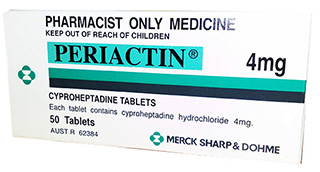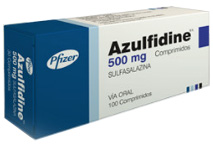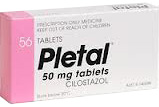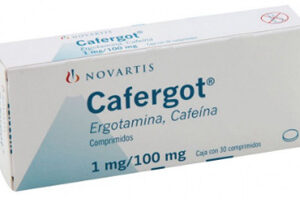Periactin is a medication that belongs to the class of antihistamines. Its generic name is cyproheptadine hydrochloride, and it is available in the form of tablets. Periactin is primarily used to relieve symptoms of allergies such as sneezing, runny nose, itching, and watery eyes. It works by blocking the action of histamine, a substance in the body that causes allergic symptoms. In addition to its antihistamine properties, Periactin also exhibits anticholinergic and antiserotonergic effects, which further contribute to its therapeutic effects.
Periactin is commonly prescribed to treat allergic conditions such as hay fever, allergic conjunctivitis, and urticaria. It may also be used as an appetite stimulant in individuals with poor appetite or for the management of certain types of headaches. However, it is important to note that Periactin is not recommended for use in children under the age of two years.
When Not to Take Periactin
Periactin should not be taken in the following situations:
1. Hypersensitivity: Individuals with a known allergy or hypersensitivity to cyproheptadine or any other ingredients in Periactin should avoid taking this medication.
2. Acute Asthma Attack: Periactin is contraindicated in patients experiencing an acute asthma attack. It should not be used as a rescue medication for asthma exacerbations.
3. Angle-Closure Glaucoma: Due to its anticholinergic effects, Periactin can increase the intraocular pressure in individuals with angle-closure glaucoma. Therefore, it should be avoided in patients with this condition.
4. Urinary Retention: Periactin can exacerbate symptoms of urinary retention due to its anticholinergic effects. It should be used with caution in individuals with urinary bladder neck obstruction or those at risk of developing urinary retention.
Possible Side Effects
Like any medication, Periactin can cause side effects, although not everyone experiences them. The most common side effects of Periactin include drowsiness, dizziness, dry mouth, blurred vision, and constipation. These side effects are usually mild and transient, and they tend to improve with continued use of the medication.
In rare cases, Periactin may cause more serious side effects that require immediate medical attention. These include:
1. Allergic Reactions: Some individuals may develop an allergic reaction to Periactin, characterized by symptoms such as rash, itching, swelling, severe dizziness, and difficulty breathing. If any of these symptoms occur, medical help should be sought immediately.
2. Adverse Effects on the Heart: Periactin may cause changes in heart rhythm, leading to palpitations or irregular heartbeat. If any of these symptoms occur, a healthcare professional should be consulted.
3. Central Nervous System Effects: Periactin can affect the central nervous system, resulting in symptoms such as confusion, hallucinations, and seizures. These effects are rare but should be reported to a healthcare provider if experienced.
Dosing Information
The dosing of Periactin may vary depending on the condition being treated and individual factors such as age and weight. It is important to follow the specific instructions provided by the healthcare professional or the medication label. Generally, the recommended starting dose for adults and children over the age of 14 is 4mg (one tablet) three times a day.
If a dose of Periactin is missed, it should be taken as soon as remembered. However, if it is almost time for the next scheduled dose, the missed dose should be skipped to avoid doubling up on the medication. It is important not to take more than the prescribed dose of Periactin to avoid potential side effects or overdose.
In the case of an overdose, medical attention should be sought immediately. Symptoms of an overdose may include confusion, hallucinations, seizures, severe dizziness, irregular heartbeat, and difficulty breathing.
Periactin and Concomitant Drugs
Periactin can interact with certain medications, potentially increasing the risk of side effects or reducing the effectiveness of either medication. It is important to inform the healthcare provider about all medications, including over-the-counter drugs and herbal supplements, being taken concurrently with Periactin.
Some of the drugs that may interact with Periactin include:
1. Monoamine Oxidase Inhibitors (MAOIs): Concurrent use of Periactin with MAOIs can result in increased anticholinergic effects and contribute to adverse reactions. A washout period of at least 14 days is recommended between the discontinuation of MAOIs and initiation of Periactin.
2. Sedatives or CNS Depressants: The sedative effects of Periactin may be potentiated when taken with medications that have a sedative effect, such as benzodiazepines, opioids, or alcohol.
3. Anticholinergic Drugs: The concomitant use of Periactin with other medications possessing anticholinergic properties can increase the risk of side effects such as dry mouth, blurred vision, and urinary retention.
It is crucial to consult a healthcare professional or pharmacist for a comprehensive list of potential drug interactions and to discuss any concerns or questions regarding the concomitant use of Periactin with other medications.
Common Questions
-
1. Can Periactin be used to treat other conditions?
Periactin is primarily indicated for the relief of allergy symptoms. Its use in other conditions should be discussed with a healthcare professional.
-
2. Can Periactin be used in children?
Periactin is generally not recommended for use in children under the age of two years. The dosage and safety in pediatric patients should be determined by a healthcare professional.
-
3. Can Periactin cause drowsiness?
Yes, drowsiness is a common side effect of Periactin. It is important to avoid activities that require alertness until the individual’s response to the medication is known.
-
4. Can Periactin be taken during pregnancy or breastfeeding?
The safety of using Periactin during pregnancy or breastfeeding has not been well-established. It is important to consult a healthcare professional before using this medication in these situations.
-
5. What should I do if I experience severe side effects?
If you experience severe side effects or an allergic reaction, seek immediate medical attention and discontinue the use of Periactin.






Reviews
There are no reviews yet.